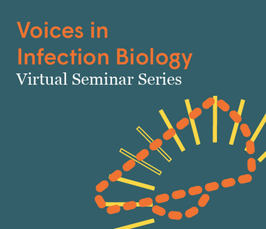Chemical tools for uncovering new redox biology at the host-microbe interface
Voices in Infection Biology
- Date: Oct 12, 2022
- Time: 04:00 PM (Local Time Germany)
- Speaker: Stavroula Hatzios
- Yale University
- Location: Zoom video conference
- Host: Arturo Zychlinsky & Alessandro Foti
- Contact: vseminars@mpiib-berlin.mpg.de

If you are interested in joining the seminar, please contact: vseminars@mpiib-berlin.mpg.de
Once registered, you will receive a zoom conference link 30 mins before the talk starts - please sign in using your full name.
Abstract:My lab studies host–microbe interactions in the gastrointestinal tract through the activity-guided discovery of proteins, post-translational modifications, and metabolites that shape cell signaling at the molecular level. The primary goal of our research program is to understand how bacterial and host cells respond to oxidative stress in the context of cancer-causing infections. Chronic inflammation and oxidative stress are hallmarks of infection-associated cancers, yet very little is known about the molecular oxidation events that contribute to tumor growth. We are investigating the hypothesis that oxidation at the post-translational level is a driver of cancer signaling during infection. To examine the role of redox signaling in carcinogenic infections, my lab has developed a chemical proteomic strategy that can identify specific sites of protein oxidation in infected cells with single-amino-acid resolution. In this talk, I will present our work characterizing an infection-induced oxidation site on the host protease legumain that regulates legumain processing and tumor growth. In addition, I will discuss our efforts to identify metabolites that promote bacterial resistance to oxidative stress in the host environment. Using a targeted metabolomic screen, we recently discovered a transporter that enables microbial uptake of a diet-derived antioxidant from the host. Through this work, we aim to uncover redox-signaling pathways and mechanisms of antioxidant defense that could be targeted to improve the diagnosis and treatment of gastrointestinal cancers.